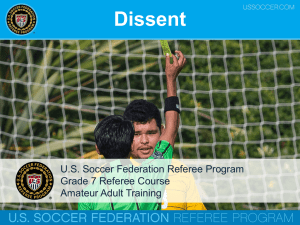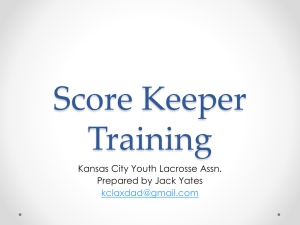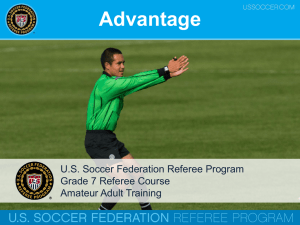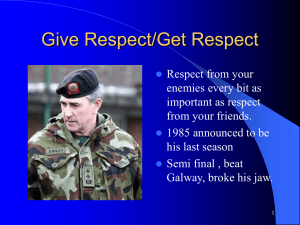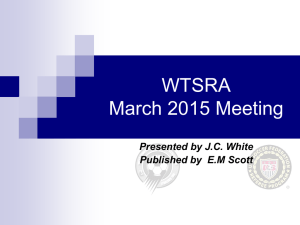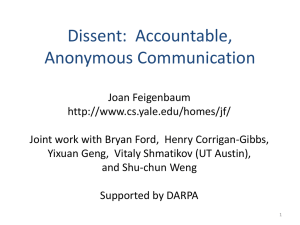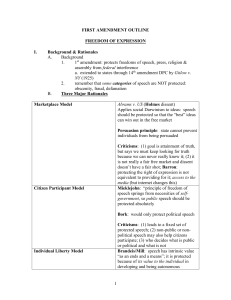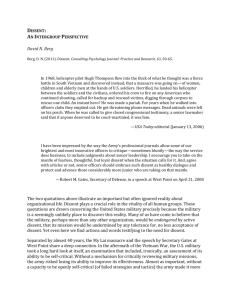Dissent
advertisement
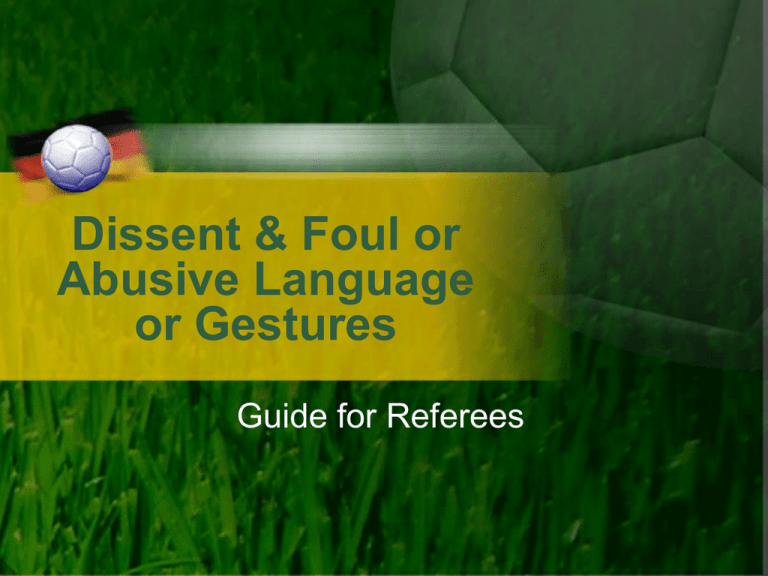
Dissent & Foul or Abusive Language or Gestures Guide for Referees Dissent • 3”P’s” • Public: Can others see it. What message is the player sending? Who can hear the comments? How loud are the comments? Are these actions made to “show up” the referee? Do these words or actions make the referee look negative to others? Dissent • Personal: Are the comments directed at the referee? Is the player frustrated with what just happened? What is the tone and voice of the comment? Dissent • Provocative: Are the comments meant to incite? Is the tension level now heightened? Is anger meant to promote further conflict on the field? Is there gender or racial or sexual comments and what are the ramifications? Dissent • A player who continues after play has restarted, will be cautioned. • A player who follows you around, will be cautioned. • A player who raises their voice loudly, will be cautioned. • A player who does one of the three “P’s”, will be cautioned. • A player who goes after an AR, will be cautioned. Dissent • • • • Actions: Isolate the player, quiet word Integrity is questioned, caution. If ball is in play, restart with an indirect free kick, where the offence occurred. • You may play advantage, but you must deal with it at next stoppage. • Setting a standard allows colleagues to flourish in the future. F,A,I,L&G • What is the line that is crossed? • When does dissent become FAIL&G? • When does FAIL&G take away from spectators enjoying the game? • When do you start to prevent it? FAIL&G • Foul language can be directed at anyone, anything or oneself. • Abusive language can be directed at anyone, including officials, players, spectators or any other participant in the match. • Abusive language need not be a foul but its effect is the worst type of foul. • Abusive body language must be dealt as abusive language. FAIL&G • If any of 3”P’s” are used in combination they are foul and abusive. • Referee does nor discern what is said in the streets. • What is said in private does not carry into a match. • Not dealing with FAIL&G brings the game into disrepute. FAIL&G • Applying standards to the age groups must be realistic. • Youth players get no leniency. FAIL&G • Summary: • If you find the words or actions offensive to you, other players, coaches, spectators, you must deal with it. • A player who uses FAIL&G must be sent off. • Referees must be consistent, have courage, and make the correct application. • You will be respected for your actions.
